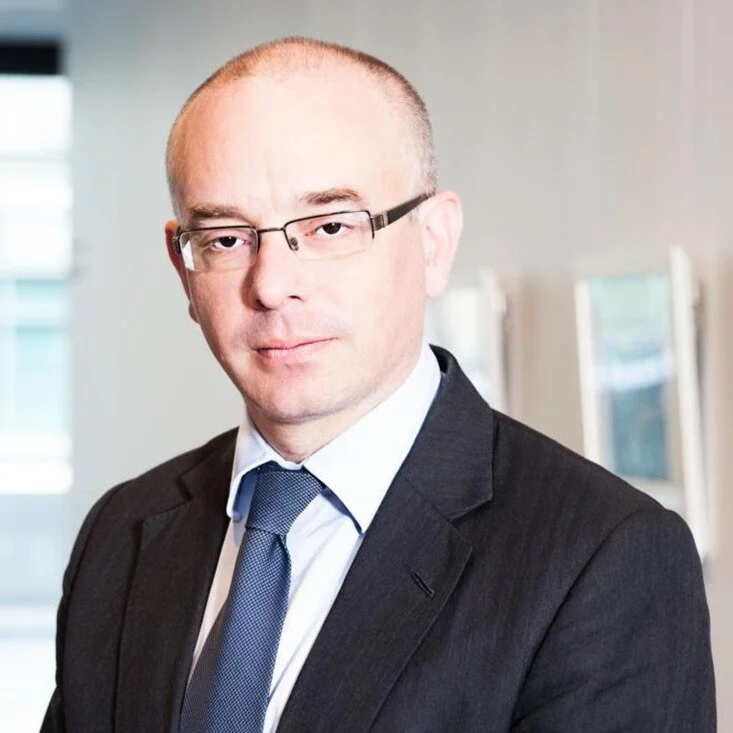Inclusive cities. Dynamic economies. Better lives.
The 2025 Open for Business City Ratings
About the City Ratings Report
The Open for Business City Ratings benchmarks 149 cities based on their performance across two key dimensions: LGBTQ+ inclusion and economic competitiveness.
This unique index evaluates urban centres worldwide to identify which cities successfully combine inclusive policies with economic strength, reflecting the growing evidence that LGBTQ+ inclusion is a driver of economic prosperity and business success. First launched in 2018 and updated in 2020 and 2022, this fourth edition delivers fresh insights and consolidated data points. Explore the 2025 City Ratings to see how your city ranks and what makes these urban hubs the powerhouses of innovation and progress.
 Note on Terminology
Note on Terminology
Note on Terminology
Note on TerminologyThe acronym LGBTQ+ is used throughout this report to refer to communities and individuals with diverse sexual orientations, gender identities, and gender expressions. Learn more
Copenhagen AAA
London AA
Cairo D
Panama City C
Athens C
Stockholm AAA
Hanoi DD
Milan BB
Amsterdam AAA
Hong Kong BBB
Cape Town CC
Nairobi DD
Prague BB
Melbourne AA
Mexico City CCC
Seoul B
Toronto AAA
Kyiv DDD
Boston AA
Vancouver AA
Kuala Lumpur C
Houston AA
Barcelona A
Buenos Aires CCC
Lima C
Lisbon BBB
Copenhagen AAA London AA Cairo D Panama City C Athens C Stockholm AAA Hanoi DD Milan BB Amsterdam AAA Hong Kong BBB Cape Town CC Nairobi DD Prague BB Melbourne AA Mexico City CCC Seoul B Toronto AAA Kyiv DDD Boston AA Vancouver AA Kuala Lumpur C Houston AA Barcelona A Buenos Aires CCC Lima C Lisbon BBB
Copenhagen tops this year’s City Ratings with a AAA score, reflecting its exceptional LGBTQ+ inclusion policies and strong economic performance. The city exemplifies economic dynamism, a vibrant business culture, cutting-edge infrastructure, and world-leading sustainability and inclusion practices. It scores highly across all economic categories, excelling in innovation, entrepreneurship, and clean technology, while maintaining a thriving startup scene that attracts diverse international talent.
Built on a foundation of sustainable development and digital transformation, Copenhagen’s tech ecosystem spans biotechnology, renewable energy, and digital innovation, cementing its position as one of Europe’s leading hubs for tech collaboration. The city’s inclusive approach has earned it top marks in social acceptance and life satisfaction, underpinned by pioneering gender identity laws, trans-inclusive healthcare, and comprehensive mental health services for LGBTQ+ residents.
While Denmark made history in 1989 by recognising same-sex unions, the country has yet to ban conversion therapy, though the government launched an investigation into the practice last year. Copenhagen’s integration of economic innovation with progressive social policy offers a distinctive model of urban development that many global cities aspire to replicate.
Copenhagen ranked as 2025’s number one city for inclusivity and economic performance.
Key research highlights
In an era of global economic uncertainty, AAA-rated cities like Copenhagen, Stockholm, and Zurich demonstrate remarkable stability, maintaining their top-tier ratings despite worldwide market volatility. These cities combine progressive social policies with robust economic frameworks, creating resilient urban environments that continue to attract investment and talent even during turbulent times.
The stability of these cities stems from their diverse economic bases. What's particularly noteworthy is that these cities achieve their stability through openness and adaptability rather than conservative policies, suggesting that progressive urban approaches and inclusive policies serve as more effective stabilizing forces than traditional economic protections.
Bangkok's emergence as a prominent LGBTQ+ leader marks a significant milestone in Southeast Asia's journey towards inclusion. The city's adavancement is anchored by Thailand's historic legislation of same-sex marriage in 2025 and the city's growing reputation as a regional hub for LGBTQ+ inclusion.
However, the city's path hasn't been without obstacles, such as workplace discrimination, which remains a pressing concern. Bangkok's rating also reflects broader economic headwinds, highlighting how structural challenges can impact a city's overall business environment even as social progress continues.
U.K. and Irish cities have experienced unprecedented downgrades in this year’s ratings, with London falling below AAA status for the first time since the City Ratings began in 2018. The decline stems from two key factors: a deteriorating environment for LGBTQ+ inclusion, marked by rising anti-trans rhetoric across the country, and national economic challenges including slow growth and high inflation.
Join us in making an impact.
Celebrate inclusive cities by sharing a quick look at the world's top places for inclusivity and what makes them thrive. With one click, create a ready-made post featuring five slides that reveal the powerful link between economic competitiveness and inclusion.
Meet the Authors behind the Open for Business City Ratings
BEHIND THE INSIGHTS
-
Fernando Alonso Pérez-Chao • Lead Author, Director of Global Engagement, Open for Business
Jasper Linke • Senior Data Analyst
Paul Donovan • Contributing Author, Chief Economist, UBS Global Wealth Management
Vivienne Ming • Contributing Author, Cognitive neuroscience faculty member of Singularity University
Stella Reed • Contributing Author
Matt Horwood • Contributing Author, Director of Communications, Open for Business
Sophia D’Cruz • Contributing Author, Digital Content Lead, Open for Business
Dominic Arnall • Chief Executive Officer, Open for Business
Jon Miller • Founder, Chair and Executive Editor, Open for Business
-
Oxford Economics
-
Pawel Adrjan • Director, EMEA & APAC Economic Research, Indeed
Dr. Yvette Burton • Founder and Workplace Futurist Silent Partner Solutions LLC
Paul Donovan • Chief Economist, UBS Global Wealth Management
Paul Jansen • Senior Director, Global Programs and Grantmaking, OutRight Action International
Drew Keller • Director, Institute for the Study of Business in Global Society (BiGS), Harvard Business School
Dr. Vivienne Ming • Cognitive neuroscience faculty member of Singularity University; Co-Founder of Socos Lab
Egerton Neto • Programs Manager, the International Panel on the Information Environment (IPIE)
Suen Yiu Tung • Founding Director of Sexualities Research Program, Chinese University of Hong Kong
Dr. Matteo Winkler • Professor of Law, HEC Paris
-
Stephanie Galera • Head of Southeast Asia, Open for Business
Amarildo Fecanji • Project Management Consultant, Open for Business
Akudo Oguaghamba • Executive Director, Women's Health and Equal Rights Initiative, FCT Abuja, Nigeria
Srini Ramaswamy • Co-Founder: Price Circle, Rainbow Bazaar & Fameworks Entertainment
Erasmo E. Sánchez Herrera • Vice President, Global Division, National LGBT Chamber of Commerce (NGLCC)
Alfredo Flores • Founding partner of the consulting firm Crezco
Rupert Abbott • RightsStart
Ross Murray • Vice President, GLAAD Media Institute
Bella FitzPatrick • Executive Director, IGLYO
Forewords

I am enormously proud to bring you the 2025 iteration of the Open for Business City Ratings Report, a global benchmark of 149 cities. Top-rated cities are better positioned to navigate economic volatility and political headwinds: AAA-rated cities maintain status despite global volatility.
Dominic Arnall
Chief Executive Officer • Open for Business
I am enormously proud to bring you the 2025 iteration of the Open for Business City Ratings Report, a global benchmark of 149 cities.
Back in 2017 when we published the first edition, we could not have imagined the global events that would shift our lives in the following years. Despite these disruptions, cities have retained their status as centres of economic growth and inclusion, demonstrating both their resilience and their importance.
In an era of global economic uncertainty and global volatility, AAA-rated cities like Copenhagen, Stockholm, and Zurich demonstrate remarkable stability, maintaining their top-tier ratings despite worldwide market volatility, geopolitical shocks, and supply-chain disruptions. These cities combine progressive social policies with robust economic frameworks, creating resilient urban environments that continue to attract investment and talent even during turbulent times. What’s particularly noteworthy is that these cities achieve their stability through openness and adaptability rather than conservative policies, suggesting that progressive urban approaches and inclusive policies serve as more effective stabilizing forces than traditional economic protections.
The economic success of LGBTQ+ inclusive cities sends a powerful message: respect for diverse communities often indicates a broader commitment to human rights and democratic principles. As some nations drift toward authoritarian policies and anti-LGBTQ+ legislation, these progressive urban centres serve as crucial safeguards for both queer rights and democratic values. Their prosperity challenges the notion that social conservatism is necessary for economic success.
The high scores of diverse, inclusive cities in both economic and social metrics suggest they’re becoming important counterweights to national political polarization. Their success in combining business environment scores with strong social attitudes metrics offers a model for transcending traditional political divisions.
Dominic Arnall
Chief Executive Officer • Open for Business


Inclusive cities can develop a virtuous spiral effect, by attracting talent (including LGBTQ+ talent) and making the most of it.
Paul Donovan
Chief Economist • UBS Global Wealth Management
The twenty first century is when everything changes.
The fourth industrial revolution—the combination of robotics, digitisation, artificial intelligence, and social media—is a truly revolutionary event. How and where we work and consume, and the infrastructure we need, are changing.
In any period of technological upheaval, it is tempting to focus on the technology itself. This is the nice, shiny new toy that tends to captivate the imagination. But the reality is that technology considered in isolation matters little. It is how the technology is used that matters. The steam engine was, after all, invented in the first century C.E., and initially nothing changed. It was 1,700 years until human beings started to use steam engines in an economically productive way.
Economic success depends on the people that use the technology. The mantra for economic success in any company, city, or country is “right person, right job, right time.” Prejudiced economies that reject 10% or more of their population because they are LGBTQ+ are guaranteed to get this wrong. Including the talent that this population represents by creating an inclusive culture will inevitably increase entrepreneurship and innovation by broadening the talent pool.
The importance of inclusion goes beyond the number of works. Quality should also improve. Anyone who has crouched in the closet at work knows how exhausting it can be to hide who you really are. It is difficult to perform at your best in the workplace if you are spending energy performing the role of “straight person.” There is less incentive to develop your skills if you believe your sexuality will prevent your skills being recognised. The more inclusive the culture of a city at large, the more likely it is that people will achieve their full potential.
The strong link between economic competitiveness and inclusion risks creating more divided societies in the coming years, as in periods of structural change people tend to look for a scapegoat to blame for their feelings of economic insecurity. Being able to blame a single group offers a pleasing simplicity in a frighteningly complex world. Throughout history, foreigners have been consistent, convenient scapegoats, but a convenient target has been any group in society that has made progress toward equality. Changing status makes groups a target when people are fearful of change. After the queer community’s limited progress toward equality in recent years, they are an obvious target for scapegoating.
This means that inclusive cities can develop a virtuous spiral effect, by attracting talent (including LGBTQ+ talent) and making the most of it. That increases the economic benefits of technology and enhances competitiveness. The risk is that the gap between the economic performance of inclusive cities increases relative to other regions. The relative economic decline of areas that are less inclusive may, perversely, make inclusion more difficult to achieve in those areas. As inclusive cities outperform economically, less inclusive areas may become more resentful and be further seduced by the simplicity of scapegoat economics.
Paul Donovan
Chief Economist • UBS Global Wealth Management

Open for Business City Ratings 2025
The ratings for 149 cities around the world are presented in our new, more interactive tool. Some of these cities are inclusive, open, and competitive – and some are not.





